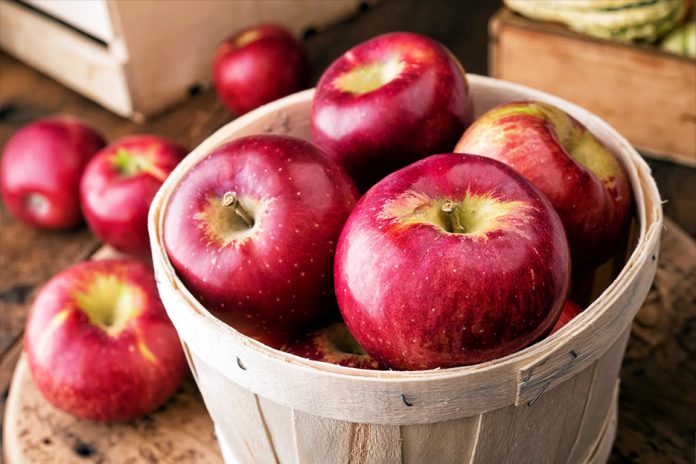What Is an Apple?
An apple is a crunchy, bright-colored fruit, which is one of the most popular in the U.S. You’ve probably heard the age-old saying, “An apple a day keeps the doctor away.” Although eating them isn’t a cure-all, it is good for your health.
European settlers brought apples with them to the Americas. They preferred apples to North America’s native crab apple, a smaller, tarter fruit.
Today, many types of apples are grown in the U.S., but a small percentage of the ones you can buy in grocery stores are imported. Each type has a different shape, color, and texture.
An apple can be sweet or sour, and its flavor can vary depending on what type you’re eating.
Apple Types
There are many varieties, including:
- Red Delicious
- McIntosh
- Crispin
- Gala
- Granny Smith
- Fuji
- Honeycrisp
Apple Health Benefits
Apples can do a lot for you, thanks to plant chemicals called flavonoids. And they have pectin, a fiber that breaks down in your gut. If you take off the apple’s skin before eating it, you won’t get as much of the fiber or flavonoids.
Phytochemicals
Nutritionists and other scientists get excited about apples because of their phytochemical content. Phytochemicals are substances found in plants that may be good for human health. They go by many different names, such as phytonutrients, polyphenols, antioxidants, phytochemicals, and flavonoids. You shouldn’t peel your apples, as most of the phytochemicals are in the skin.
Fiber
The fiber can slow digestion, so you feel fuller after eating. This can keep you from overeating. Eating fiber-rich foods helps control symptoms and lessens the effects of acid reflux. An apple’s fiber can also help with diarrhea and constipation.
Blood vessel and heart damage protection
Some studies show that plant chemicals and the fiber of an apple peel protect against blood vessel and heart damage. They also can help lower your cholesterol, and they might protect your cells’ DNA from something called oxidative damage, which is one of the things that can lead to cancer.
Antioxidants
Research shows the antioxidants in apples can slow the growth of cancer cells. And they can protect the cells in your pancreas, which can lower your chances of type 2 diabetes.
Other health benefits
Scientists also give apples credit for helping:
- Your lung strength
- Your heart
- With asthma
- Bone health
- Weight loss
- Your brain (easing symptoms of Alzheimer’s disease and age-related memory loss)
- Your immune system
- Your gut health
You don’t need to be concerned about the sugar in apples. Although they have carbs that affect your blood sugar, these carbs are different from other sugars that strip away fiber that’s good for you.
Apple Nutrition
Apples are low in sodium, fat, and cholesterol. They don’t offer protein, but apples are a good source of vitamin C and fiber.
One medium apple has about:
- 25 grams of carbohydrates
- 19 grams of sugar
- A variety of strong antioxidants
How much fiber in an apple?
One medium apple with the skin has around 4 grams of fiber, while one without the skin has around 2 grams.
How many calories are in an apple?
You’ll get about 100 calories when you eat a medium apple.
Credit: webmd.com









